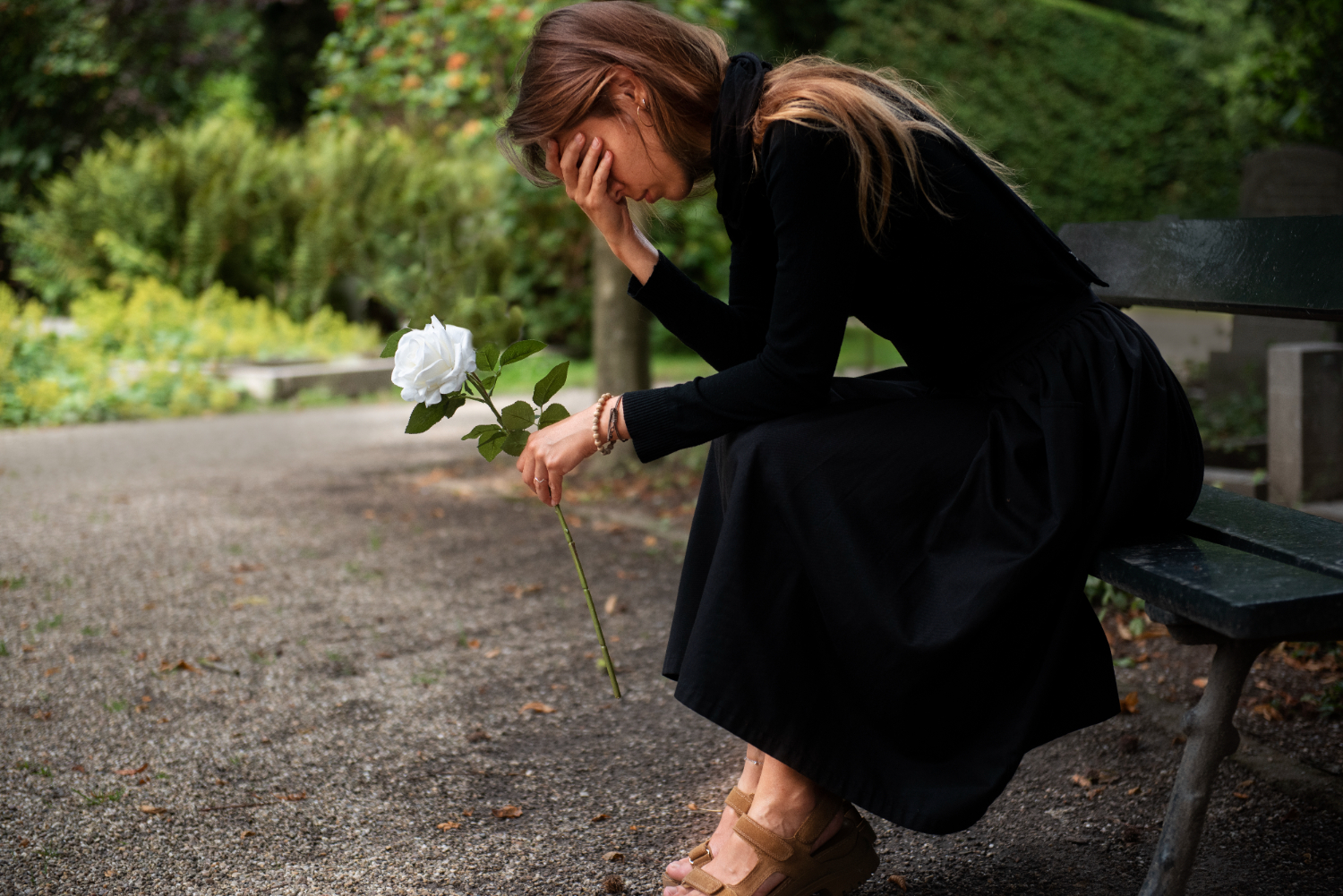The Guilt of Living—When Moving Forward Feels Like Betrayal

It wasn’t planned. It wasn’t intentional. A memory surfaced—one of the good ones. The kind that used to make my heart swell with warmth instead of ache with loss. And before I could stop myself, I smiled. I even let out a small laugh.
Then the guilt hit like a wave, dragging me under.
Table of Contents
- How could I laugh when my child is gone?
- The Battle Between Love and Pain
- Learning Tools: Releasing Guilt While Honoring Love
- 1. Talking to Your Child
- 2. Creating a “Permission to Live”
- 3. A Daily Love Reminder
- Guided Meditation: Allowing Joy Without Guilt
How could I laugh when my child is gone?
How could I find joy in a world that no longer holds them? It feels wrong. Disloyal. As if my suffering is the last thread connecting us, and if I let go of it, I let go of them.
I didn’t expect this feeling—the guilt of surviving, of continuing, of existing in a world that kept turning without them. There is a part of me that believes I should always be sad. That healing, in any form, means forgetting.
And yet… something in me knows that’s not true.
The Battle Between Love and Pain
Grief is strange. One moment, it feels like drowning, like I will never find the surface again. The next, there’s a glimpse of light—a moment of ease, of laughter, of peace—and instead of embracing it, I recoil.
Because who am I without this grief? Who am I without the daily weight of loss pressing down on me?
If I smile, does that mean I didn’t love them enough?
If I enjoy something, does that mean I’ve moved on?
If I keep living, does that mean I have left them behind?
But the truth—the one I am only beginning to whisper to myself—is that grief and love are not the same thing.
The pain will always be part of me. But so will the love.
And maybe—just maybe—love wants me to keep living.
Learning Tools: Releasing Guilt While Honoring Love
Guilt often accompanies grief, making it difficult to allow even the smallest moments of peace. These tools are designed to help you navigate the complex emotions of moving forward while still honoring your child.
1. Talking to Your Child
Find a quiet space. Close your eyes.
Imagine your child sitting in front of you, whole, radiant, full of love.
Ask them, “Do you want me to suffer?”
Deep in your heart, you already know their answer.
2. Creating a “Permission to Live”
Write down small things you are allowed to experience without guilt.
‘I am allowed to laugh at a joke.’
‘I am allowed to enjoy my favorite meal.’
‘I am allowed to feel peace, even for a moment.’
This list is a reminder that living does not mean forgetting.
3. A Daily Love Reminder
Each morning, place your hand over your heart and say:
‘I carry love, not just loss.’
‘Living does not mean leaving them behind.’
‘My child’s love lives in me.’
Repeat as needed. Let it sink in, even if you don’t fully believe it yet
Guided Meditation: Allowing Joy Without Guilt
Find a quiet place. Close your eyes. Take a deep breath. Imagine yourself standing in a vast open field. The sky above is painted with soft colors, the wind carries a gentle warmth. In front of you, a single feather floats in the air. This feather represents the lightness of love—the love that exists beyond grief, beyond pain. You reach out and hold it in your hand. It is soft, weightless.
A voice whispers—not from outside of you, but from within:
“You are allowed to feel peace.”
“You are allowed to carry love without pain.”
“You are allowed to live.”
Tears may come, and that’s okay. There is no rush. There is only this moment, and in this moment, love holds you.
When you are ready, take a deep breath, gently open your eyes, and return to the present moment. Your love for your child is eternal. And love wants you to live.
Created By: Bethany Orrick
Recommended Blogs
 Blogs
Blogs The Gift of Small Moments—Finding Light in the Midst of Grief
The Gift of Small Moments—Finding Light in the Midst of Grief Grief has a way of shrinking the world.In the...
 Blogs
Blogs When the World Moves On—Feeling Left Behind in Grief
When the World Moves On—Feeling Left Behind in Grief Life has a way of moving forward, even when you feel...
 Blogs
Blogs When the Grief is Too Much—Learning to Take a Break from the Pain
When the Grief is Too Much—Learning to Take a Break from the Pain Some days, grief is everywhere.It’s in the...
 Blogs
Blogs The Ache of Milestones—When Time Moves Forward Without Them
The Ache of Milestones—When Time Moves Forward Without Them Another birthday approaches. Another milestone passes.I find myself caught between two...
 Blogs
Blogs The Holidays Without Them—When Joy and Grief Collide
The Holidays Without Them—When Joy and Grief Collide The holidays are here, and the world feels different. Everywhere I look,...
 Blogs
Blogs The Unexpected Triggers—When Grief Hides in the Smallest Moments
The Unexpected Triggers—When Grief Hides in the Smallest Moments Grief is a shape-shifter. It doesn’t always show up in the...